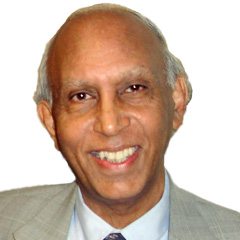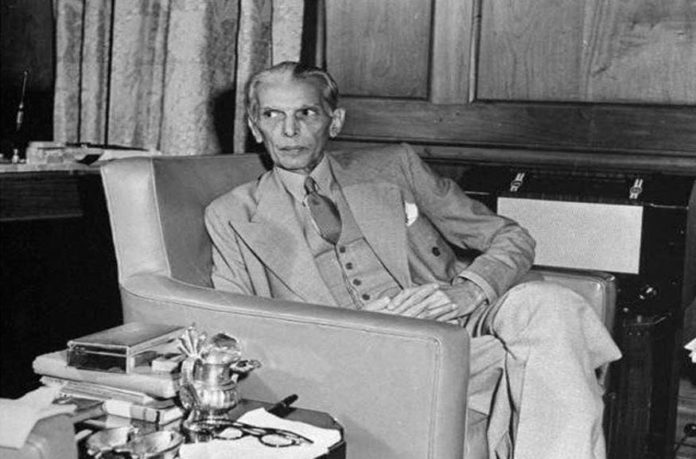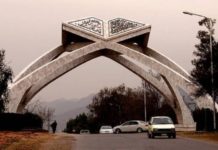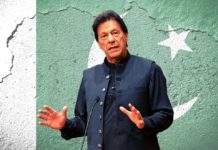I was shocked to read Mr Yasser Latif Hamdani’s observation that, “The established position in academia belongs to Cambridge school which has long overturned these myths about partition of India that Dr Ishtiaq Ahmed seeks to perpetuate. Ever since the time of Anil Seal and Ayesha Jalal, there have been many perceptive historians like Joya Chatterjee and Neeti Nair who have added new incontrovertible dimensions to the partition question”.
I wonder who conferred on Cambridge and its experts the right to term an ‘established position’ as absurd because this is unimaginable in the world of scholarship and academia. The Cambridge academic establishment has been writing books after books playing the blame game in typical colonial terms: blaming mostly Congress and its two leaders, Gandhi and Nehru for the partition, critiquing Jinnah but most importantly absolving the British for the partition as if they were fair arbiters between two impossible rivals.
There is ample literature to show how the British master-minded the partition of India, Bengal and the Punjab — a partition which caused the deaths of at least one million human beings, Hindus, Muslims and Sikhs. And now more evidence is being released to show that Winston Churchill had wanted a piece of India at all costs.
In my books, the Punjab Bloodied Partitioned and Cleansed, and Pakistan: The Garrison State, I have shown how the Supreme Commander of the British armed forces in India, Field Marshall Sir Auchinleck British on May 11th 1946 had looked at the pros and cons of creating Pakistan and concluded that Pakistan should not be established because it would mean dividing the British Indian Army which the British were hoping to continue using for the imperialist interests under a dominion framework for containing the Soviet Union and controlling the oil fields in the Middle East.
There is ample literature to show how the British master-minded the partition of India, Bengal and the Punjab — a partition which caused the deaths of at least one million Hindus, Muslims and Sikhs
Then a diametrical opposite conclusion was reached by another power section of the military. The three heads of the British armed forces, the navy, army and air force, the hero of World War II Field Marshall Montgomery and others met in London on May 12th 1947. In the memorandum, they submitted to the British government that if partition takes place it is good because Jinnah had expressed a desire to remain in the British Commonwealth while Hindustan may go its own way. In the memorandum prepared by them, it was stated that they should demand Pakistan to provide them access to Karachi port facilities, Pakistan air fields and Muslim manpower, which should be read to mean the Pakistan Army. These are original documents from the Transfer of Power volumes.
I have also quoted the head of the Eastern Command Lt. Gen. Sir Fancis Tukker, who said that from Algeria to the Arabian desert, into Persia and then northern Hindustan, we must create an ‘Islamic arc’ encircling the Soviet Union. The Muslim state in northern Hindustan should be armed with British science to withstand Soviet expansion. I have never seen the Cambridge School focus on such documents to expose that not only was the partition a British decision, but they bear direct responsibility for the rivers of blood which flowed as a result.
Shabbir Ahmed Usmani according to Mr Hamdani was a liar and a forger. Even veteran political scientist Khalid bin Sayeed has quoted that letter in his book, Pakistan: The Formative Phase.
Interestingly, in the discussion on the Objectives Resolution Usmani preceded Sir Zafarullah in the debate. Zafarullah referred to Usmani and another speaker to underscore that Islam is indeed a tolerant religion. So, Zafarullah whom Hamdani so eagerly supports, had at that time deferred to the authority of Usmani, who according to Hamdani was a liar and forger. I have the complete transcript of the debate on the Objectives Resolution.
Since I quoted the then Punjab governor Sir Bertrand Glancy’s fortnightly reports showing that Barelvi ulema and pirs raising extremist Islamic slogans were from Muslim League, Hamdani has no choice but to accept them as a primary source. An Englishman is fine. However, when I quote Israj Khan and Toheeda Begum whose work I cited to show that Jinnah formed an agreement with Pir Sahib Manki Sharif and others he calls their spurious. On the other hand, if they have concocted the evidence then I will ensure that their university takes stern action against them. For me it is important that the truth be told. Hamdani debunks Venkat Dhulipalia’s book, Creating a New Medina, as trash. It won the Newsweek Best Global Non Fiction Book of 2015 award.
Hamdani disagreed with my statement that Sir Zafarullah had powerful backers in the British and possibly US administrations. I referred to Chaudhary Khaliquzzaman’s book, Pathway to Pakistan,where he said the same thing several times. Mian Iftikharuddin has called Zafarullah an agent of imperialism. He expressed the fear that wherever Zafarullah goes he will advance the agenda of imperialism. He feared Zafarullah would harm the Arab Muslim world notwithstanding all the ostensible pro-Arab rhetoric.
Zafarullah’s ultra-radical position on Kashmir is equally controversial. It did no good to Pakistan. The Al-Furqan Brigade consisting entirely of Ahmadis took part in the incursion of Kashmir in 1947-48. It was the first case of an armed non-state actor involved in an armed conflict which forced the Maharaja into the arms of India.
There is enough evidence that Jinnah made contradictory promises just because he wanted to maximise Muslim support. To keep harping on one speech of August 11th 1947, while ignoring how in 1940-47 Jinnah relentlessly kept saying that Hindus and Muslims can never be one nation is wrong. I have already quoted Jinnah in previous articles where he had termed Sharia as the primary source of law for Pakistan, and this was after his August 11th speech. Unless we speak the truth, we will not be able to make Pakistan an inclusive Muslim state.
About the Author:

Dr. Ishtiaq Ahmed is Professor Emeritus of Political Science, Stockholm University; Visiting Professor Government College University and Honorary Senior Fellow, Institute of South Asian Studies, National University of Singapore. He can be reached at billumian@gmail.com








